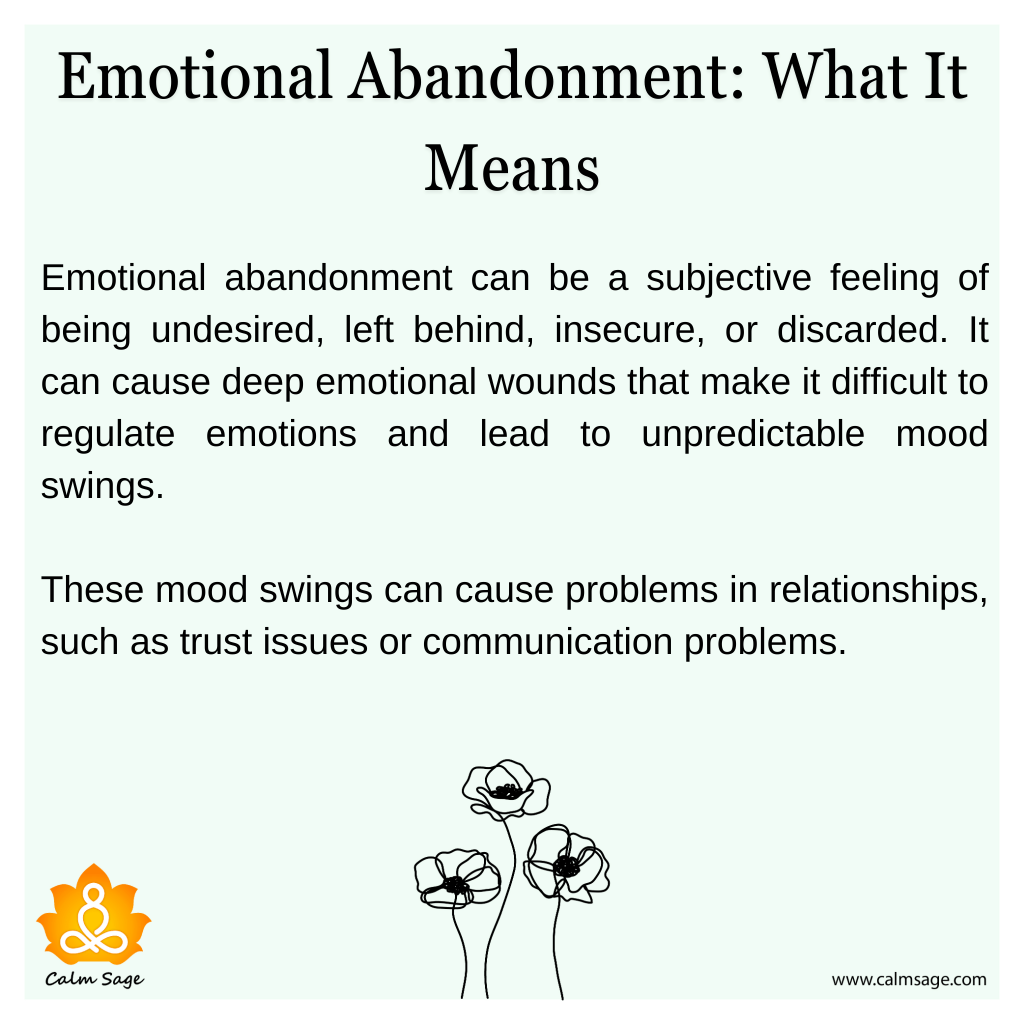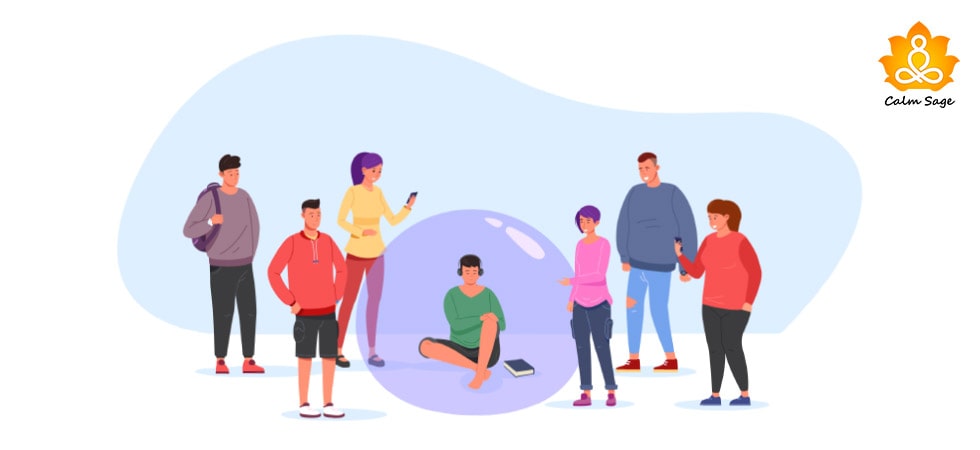Understanding Emotional Abandonment: It’s More Than Just Feeling Left Out

Our childhood times are the most formative years of our lives. Feeling lonely and left out by our peers can hurt, but it can hurt us emotionally more when our loved ones bring on the feeling of loneliness. In childhood, that title goes to parents, siblings, and other family members. So, if you’ve ever felt that your loved ones have never been there for you – emotionally – then it could be a sign of emotional abandonment.
Today, we’re exploring the complexities of emotional abandonment, what causes it, what it looks like in real-life situations, and how you can cope with it and move forward.
We all crave connection; we want to share our joys and sorrows with our loved ones, who listen to our feelings and validate them. This simple act of listening and validation can be nourishing for our well-being.
However, when our loved ones turn their backs on us – emotionally – and fail to provide the support we crave, that’s when emotional abandonment takes root.
Emotional Abandonment: What It Means

Emotional abandonment is an experience where you feel unseen, unheard, and unsupported by the people you depend on for emotional connection. It’s a deep sense of being left alone, and emotionally neglected, and often stems from a lack of responsiveness or validation from people who matter to us the most.
Some common examples of emotional abandonment can include;
- An emotionally distant parent who is unavailable to their child
- A partner or spouse who withdraws emotionally during difficult times
- A friend who constantly cancels plans or makes you feel like a burden
Signs of Emotional Abandonment
Emotional abandonment can manifest in various ways, both internally and externally. Here are some common signs of emotional abandonment to watch out for;
- You constantly feel lonely and isolated, even when surrounded by people
- You find it hard to trust others or form close relationships
- You fear rejection and have a constant need for reassurance
- You engage in people-pleasing behavior to avoid abandonment
- You find it difficult to express your needs and emotions to others
- You have a low self-esteem and believe that you’re unworthy of love
- You engage in self-destructive behavior like substance abuse or unhealthy relationships
What Causes Emotional Abandonment?
Emotional abandonment can stem from different situations you face and experience throughout your life. Some common factors that can contribute to this experience include;
- Childhood neglect: When a child’s emotional needs are consistently ignored or dismissed, it can lead to feelings of emotional abandonment
- Dysfunctional family: This could mean having a parent with mental health issues, an emotionally unavailable parent, or a chaotic household
- Emotionally absent caregivers: If your caregivers or parents were inconsistent in their support or were unable to care for your emotional needs, then that too can lead to emotional abandonment
- Loss of a loved one: The death of a loved one such as a parent, partner, or close friend can also trigger feelings of emotional abandonment
- Neglectful relationships: Being in relationships where your partner is emotionally unavailable or distant can also lead to feelings of abandonment – emotional and mental
How Does Emotional Abandonment Impact Us?
Emotional abandonment can have a significant impact on our health and relationships. For one, emotional abandonment can make it hard for us to trust others with our feelings, which can lead to difficulties in forming healthy relationships. Moreover, not having our feelings and emotions validated can negatively impact our self-esteem and self-worth.
When your emotions are invalidated, unheard, and unseen, it can increase your vulnerability to depression and anxiety. Emotional abandonment can also make it harder for us to regulate our emotions.
How to With Emotional Abandonment?
Healing from emotional abandonment is possible. Here are some things you can do to cope with emotional abandonment;
1. Acknowledge your feelings
Allow yourself to acknowledge and feel the pain of abandonment without being too hard on yourself or judging your emotions. It’s not your fault that others chose to hurt you and abandon your feelings when you needed it.
2. Identify your needs
It’s important to understand that you have needs, and it’s even more important to communicate your needs to others. Know that you have the upper hand here, and you can choose to walk away from situations that drain your energy or are harmful to your emotional health.
3. Be self-compassionate
Most of all, be kind and understanding towards yourself. Know that you deserve love and support as much as any other person. If you can’t find emotional validation in others, turn that focus inwards, and practice self-validation. You are the most important person in your life.
4. Build a support network
You can cope with emotional abandonment and learn to lean on yourself for emotional support if you have the right support network. Surround yourself with people who make you feel valued, seen, and heard – emotionally and mentally.
5. Seek Professional Help
If you’re struggling with expressing your emotions and needs with others, then you can reach out to a therapist for support. A therapist can provide guidance and tools to help you process your feelings and experiences, and develop healthier coping skills.
Wrap Up…
Emotional abandonment can be a painful experience, but it doesn’t have to be the ruling force in your life and relationships. By knowing what causes emotional abandonment, identifying the red flags, and actively working on healing, you can break free from the painful grip and build healthier, fulfilling relationships.
Remember, you are as worthy and deserving of love, support, and compassion as any other person.
I hope this blog helped you understand what emotional abandonment is, its causes, and how to cope. Let us know your thoughts in the comments section below.
Take care!




















